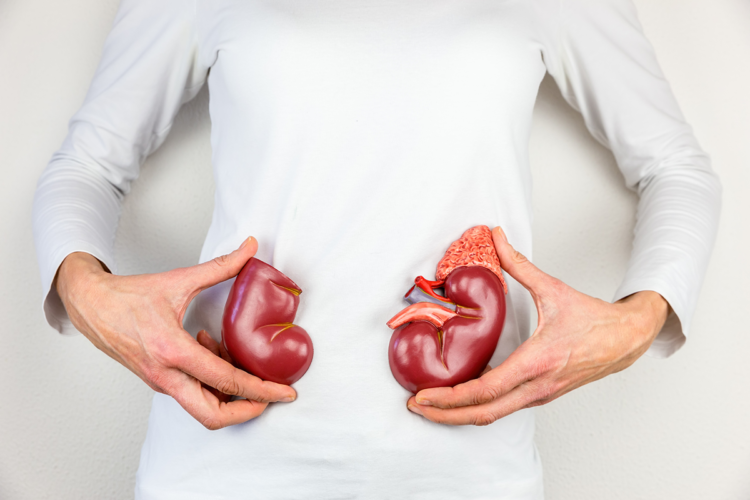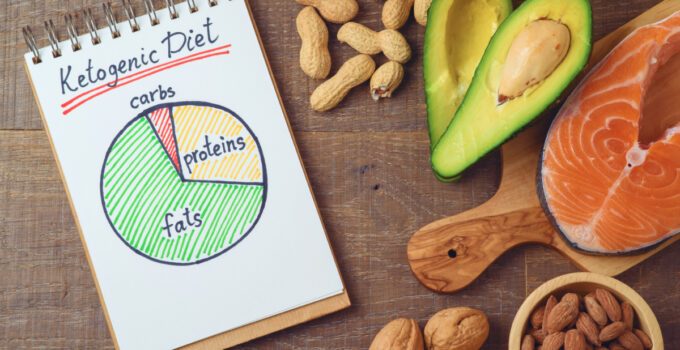Living in today’s time, you like many others must have lent a thought to go for a keto diet. The hype surrounding the keto diet has lured many into its trap. But is it really a trap or it is actually worth the hype? Like everything else, the keto diet has it’s good and bad.
Dieting is always hard but so is living with extra pounds, you just have to choose your hard. For choosing your hard wisely you must take into consideration all the aspects of the diet. You must know the pros and cons of it, to make an intelligent decision.
Keto diet is simply defined as a low-carb and high-fat diet. People often think of it as a gross diet, in which drinking bottles of coconut oil is necessary.
Well, that not the case. Like other diets, the keto diet has to be designed intricately with calculated amounts of all nutrients. A keto diet designed by a professional dietitians at Marham will cater to all your nutritional needs and will not deprive you of good food.
No matter how well the keto diet has been formulated it has some inherent cons. The pros and cons of this diet can be very subjective and depend on personal needs and wants.
Page Contents
The science behind the keto diet

Source: pexels.com
Normally your brain needs glucose to survive. This simple sugar is easily obtained from the carbohydrates in the diet. Carbohydrates are the body’s go-to option to obtain instant energy. Limiting the number of carbohydrates to almost zero, in your diet will shift your body towards using ketone bodies. Ketone bodies are produced by the breaking up of stored fat.
Ketone bodies start to produce when you starve your body for a very long time, but in keto, these bodies are produced even when you are eating, due to the lack of carbohydrates.
The state in which the body uses ketone bodies as a source of energy is called ketosis. Once you have reached the state of ketosis your body will become a fat-burning machine and you will start to lose weight.
The good
A well planned and designed keto diet can do wonders for you. Following are some of the undeniable benefits of a keto diet.
1. Lose weight
The Keto diet is famous and rightfully so, for losing stubborn weight. Keto diet can be 3-4 times more effective in losing weight than low-fat diets. Low-carb diets are proven to help lose fat faster from the abdomen area.
2. Improved heart health

Source: pexels.com
The Keto diet includes healthy sources of saturated fat. These increase your HDL (high-density lipoproteins) and good cholesterol. The key to increase your HDL and decrease LDL (Low-density lipoprotein) is to take in more sources of fat. This dynamic results in an increase in good cholesterol, which protects the heart health.
3. Reduced blood sugar
The Keto diet is responsible for lower levels of blood sugar. This can be used as a tool by diabetics to control their sugar levels and avoid excessive insulin. For many diabetic patients, the keto diet has resulted in the elimination of medications and insulin altogether. Although such drastic results are not promised, but the low intake of carbs assures low blood sugar levels for everybody.
4. Therapeutic for neural disorders:
The Keto diet has been proven to combat epilepsy. In certain conditions the brain uses ketones to work efficiently, making the keto diet suitable to cure certain brain diseases.
5. Reduce Appetite
Low-carb diets can reduce the appetite for good. Curbing appetite is always a plus for any diet. High fat and protein intake naturally reduce the appetite, leading to fewer calorie intake.
The bad

Source: goodhousekeeping.com
Following are the potential risks associated with a keto diet
1. Keto flu
Keto flu is defined as the illness that comes with drastically reducing your carb intake for the keto diet. This a very short-lived condition and varies from person to person.
The commonly reported symptoms are headache, flu, dizziness, fatigue, nausea, and constipation. This happens due to the dehydration and electrolyte imbalance that happens when your body is adjusting to ketosis. Staying hydrated and taking in electrolytes can help combat this condition easily.
2. Digestive issues
The Keto diet is notorious for causing digestive problems like constipation. Fiber is essential to maintain proper gut functioning and most of the fiber comes from carbohydrate-rich sources. removing carbohydrates from the diet also removes fiber and can result in altered gut microbiota.
3. Nutrient deficiencies
The Keto diet does not include all essential food groups. This restriction can lead to certain nutrient deficiencies. the keto diet does not encourage the consumption of fruits and starchy vegetables. both these are rich in vitamins and anti-oxidants. Sticking to the keto diet for long and not taking supplements can lead to dangerous nutrient deficiencies.
4. Stress on kidneys

Source: insights.ibx.com
Excessive fat intake can increase the risk of kidney stones. The reason for this lies in the increased excretion of calcium in the urine due to the excessive consumption of animal meat leading to acidic urine.
The Keto diet is also responsible for limiting the amount of citrate released. Citrate binds to calcium to prevent the birth of kidney stones.
People with CKD ( chronic kidney disease) should avoid the keto diet as their kidneys may fall short to remove the excessive acid build up.
5. Compromised bone health
As the body adapts to ketosis, the bone mineral density gets disturbed. The lost bone mineral density can lead to brittle bones resulting in easy bone breakage and deformities.
The Bottom Line
The bottom line is, that you should consider your health, goals, needs, and wants before deciding on whether to start a keto diet or not. The fact that no diet works the same way for everyone should be considered before making a decision.
The wisest option would be to consult a nutritionist.
A professional can examine your health condition and advise in favor of, or against the keto diet. A dietitian can carefully design your diet for you for maximum results and minimum harm.





